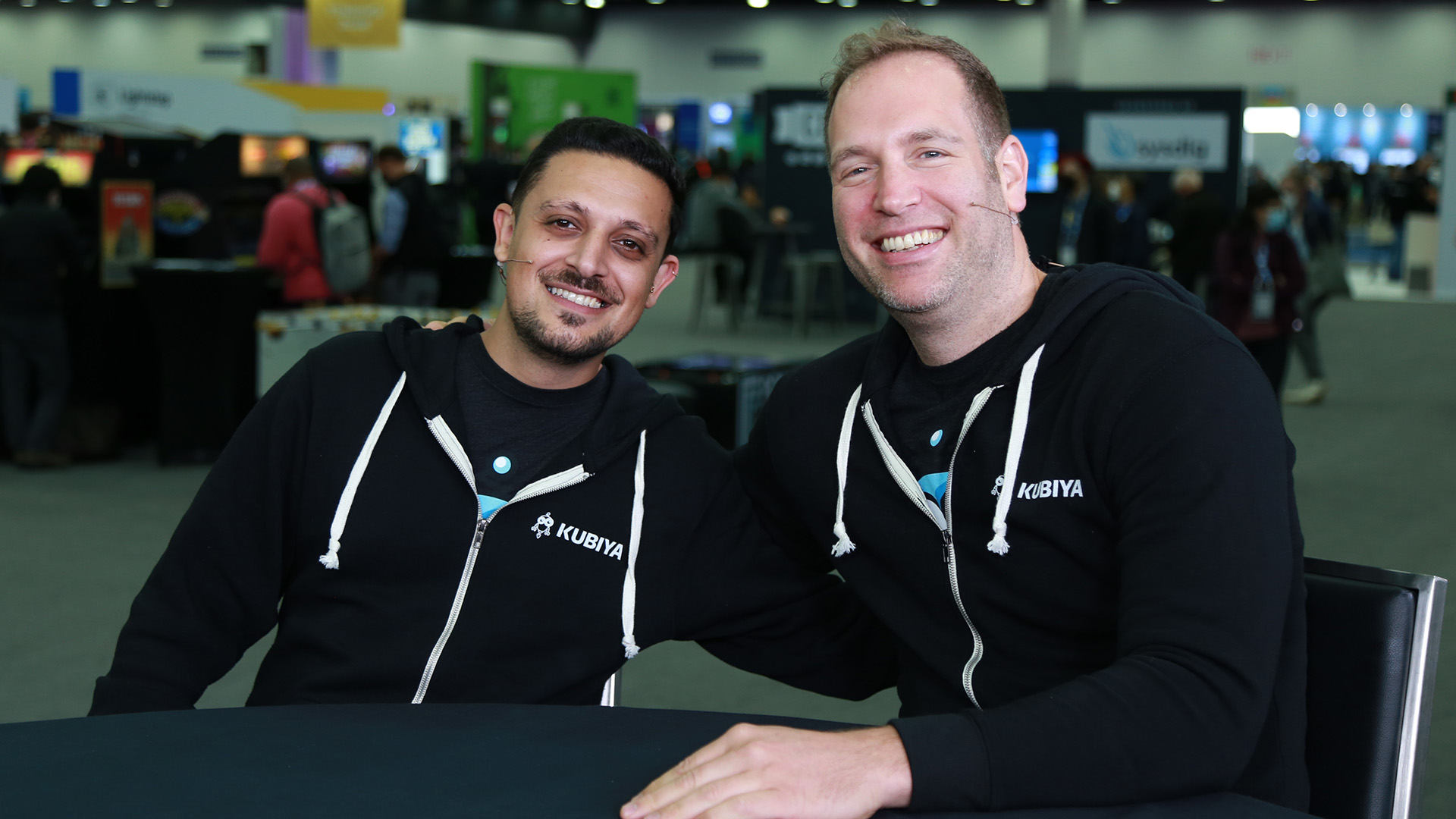 AI
AI
 AI
AI
 AI
AI
The siloed information accustomed to DevOps usually triggers various challenges, such as environment provisioning, manual deployments and lack of integrated architecture.
By revamping the world of DevOps using conversational AI, Kubiya Inc. seeks to take these pain points away by enabling teams to express their intent in natural language, according to Amit Eyal Govrin (pictured, right), co-founder and chief executive officer of Kubiya, which is an advanced virtual assistance with domain-specific expertise in DevOps.
“You go on to Ralph Lauren, Calvin Klein and you go and chat with them; now imagine you can bring that into a world of dev tools that has high domain expertise, high technical amplitude,” Govrin said. “Now you can go and combine the domain expertise with the accessibility of conversational AI; that’s a unique feature. Our huge differentiator is the ability to let the end users influence the system itself.”
Govrin and Shaked Askayo (pictured, left), co-founder and chief technology officer of Kubiya, spoke with theCUBE industry analysts Savannah Peterson and John Furrier at the KubeCon + CloudNativeCon NA 2022 event, during an exclusive broadcast on theCUBE, SiliconANGLE Media’s livestreaming studio. They discussed how conversation AI is changing the game in the DevOps space. (* Disclosure below.)
By using a custom tool kit, Kubiya helps tackle the issue of access request and control. And it offers an innovative way of approaching self-service DevOps, according to Govrin.
“We call it a ‘teach me’ feature. But, essentially, if you have any type of request and the system hasn’t created an automation or doesn’t recognize it, you can go ahead and bind that into your intent. And, next time, you can define the scope for yourself only, for the team, or even for the entire organization,” he added.
The conception of Kubiya started from a chatbot, according to Askayo, who said that his experience as a DevOps engineer helped him comprehend various challenges like access requests.
“Back then I created a chatbot; I connect this chatbot to the different organizational tools, and instead of the developers approaching me or the team using the on-call channel or directly, they will just approach the bot,” he said. “But, essentially, the bot was very naïve. So Kubiya is a more advanced version of it. Basically, with Kubiya you can define what we call workflows, and we convert all of these complexities of access request into simple conversations.”
By incorporating domain expertise, this takes the chatbot approach a notch higher away from common use cases, such as call centers and CRM tools, according to Askayo. This is made possible through a domain-specific language.
“We know the pain from the inside. We know how the operators want to define such conversations that users might have with the virtual assistant. So we combined all of the technical tools that are needed in order to get it going,” he noted. “So we have a DSL, domain specific language, where the operators can define these easy conversations and combine all of the different organizational tools, which can be done using the SDK.”
Here’s the complete video interview, part of SiliconANGLE’s and theCUBE’s coverage of the KubeCon + CloudNativeCon NA 2022 event:
(* Disclosure: Kubiya Inc. sponsored this segment of theCUBE. Neither Kubiya nor other sponsors have editorial control over content on theCUBE or SiliconANGLE.)
Support our mission to keep content open and free by engaging with theCUBE community. Join theCUBE’s Alumni Trust Network, where technology leaders connect, share intelligence and create opportunities.
Founded by tech visionaries John Furrier and Dave Vellante, SiliconANGLE Media has built a dynamic ecosystem of industry-leading digital media brands that reach 15+ million elite tech professionals. Our new proprietary theCUBE AI Video Cloud is breaking ground in audience interaction, leveraging theCUBEai.com neural network to help technology companies make data-driven decisions and stay at the forefront of industry conversations.